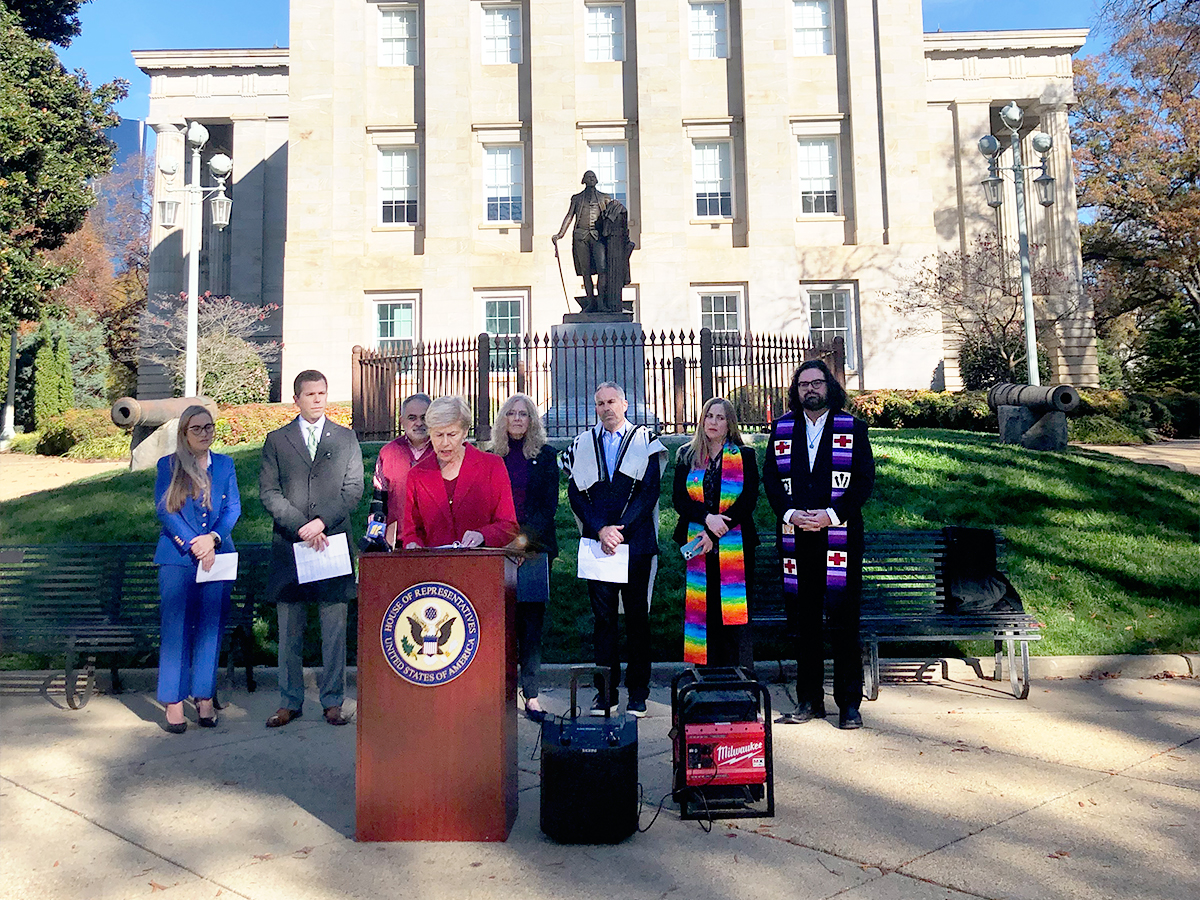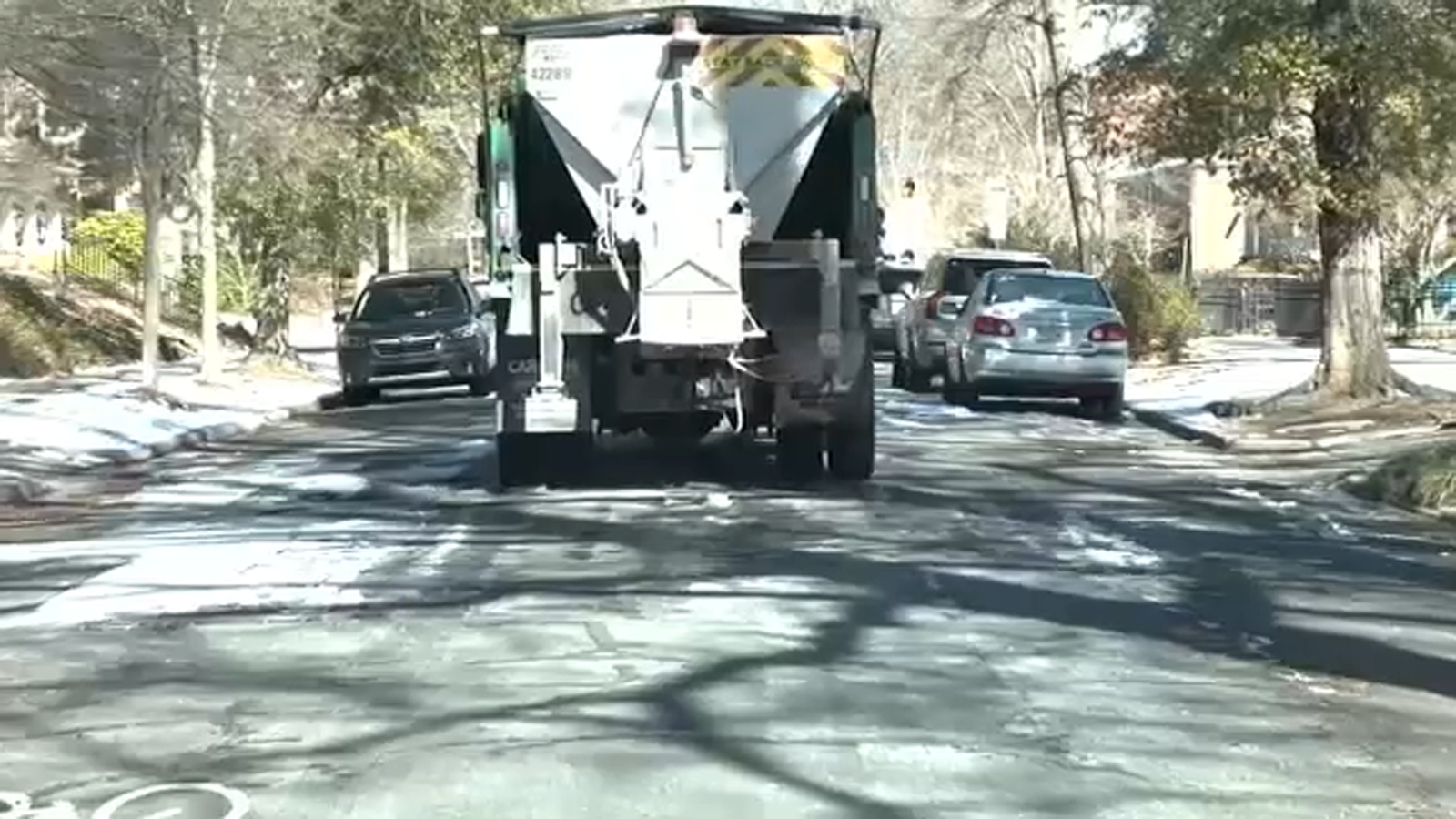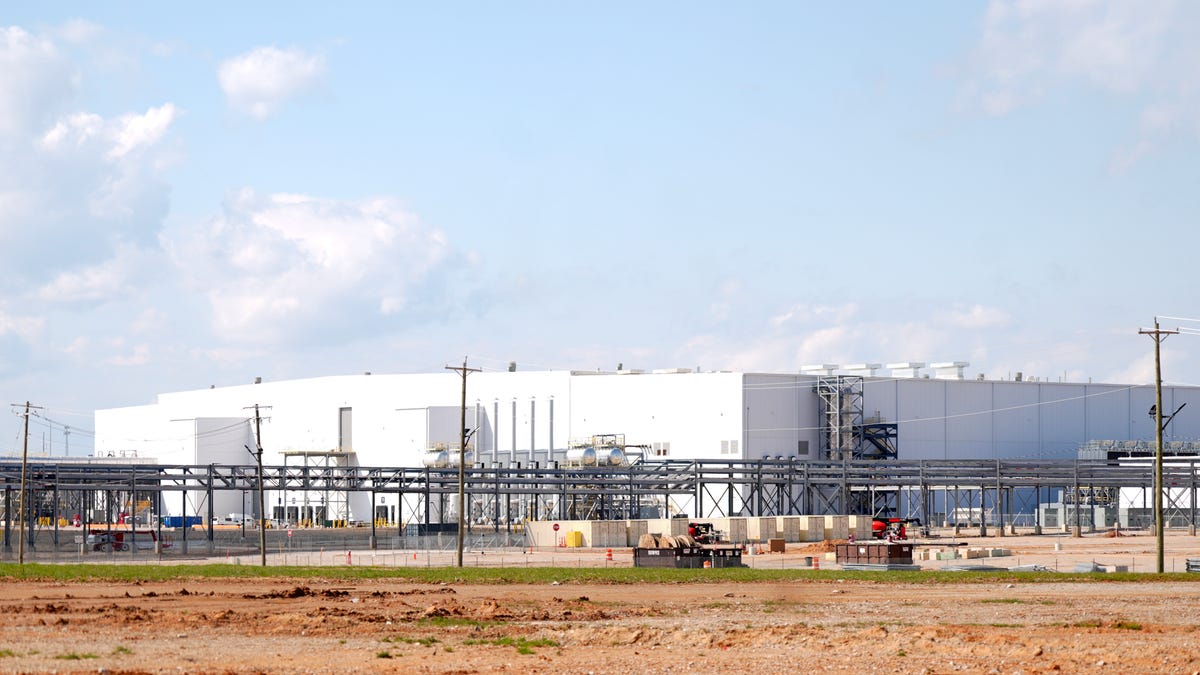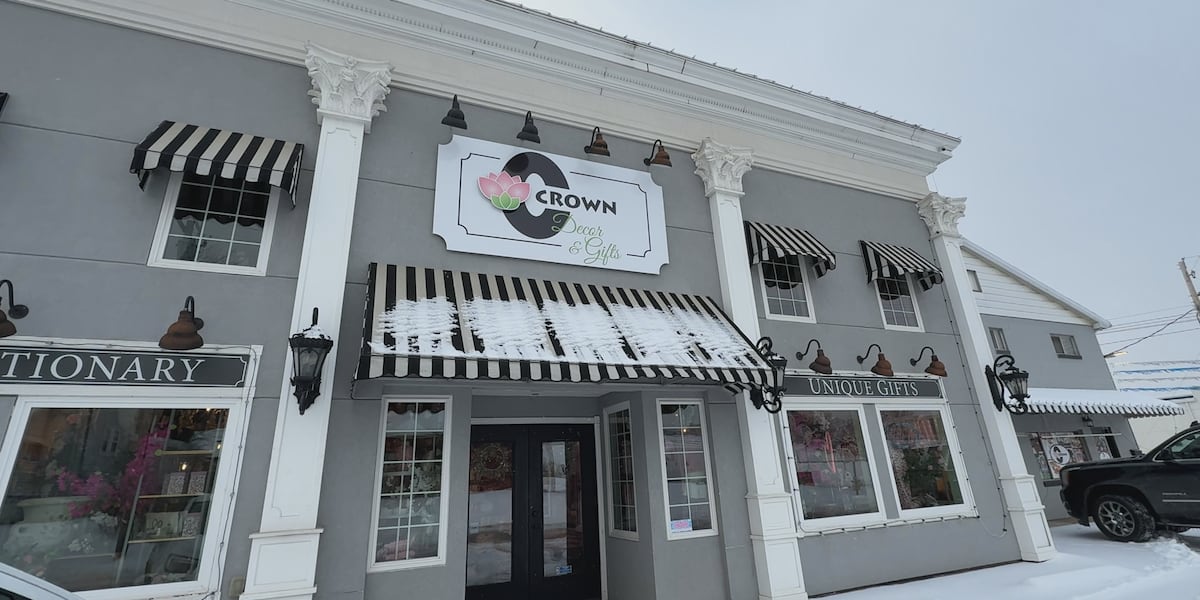Last Tuesday, Leslie Zúñiga, a nail tech from Durham, closed the doors of her Liberty Street business, as did many other business owners all across the Triangle.
“ICE was raiding our neighborhood,” Zúñiga said at a press conference with other local business owners in Raleigh on Thursday at the nonprofit Education Justice Alliance’s headquarters in southeast Raleigh. “Clients did not feel safe driving down the street, or even driving near Liberty Street.”
Zúñiga, a first generation business owner and a child of Mexican immigrants, became emotional reflecting on the events of the days prior.
“How can we organize?” she asked. “What can we do next? … Everyone deserves to live and work without fear. Small businesses deserve stability. Families deserve peace. We deserve to grow together. We deserve to be able to feel safe in our businesses, our homes, walking down the street, driving to work.”
Last week, as U.S. Customs and Border Protection (CBP) agents raided large cities including Raleigh, Durham, and Charlotte, construction sites across the Triangle sat mostly empty, including Raleigh’s upcoming $260 million new city hall. Restaurants closed their doors and international grocery stores pivoted to delivery. Childcare centers asked parents if they could keep their children at home because not enough of their staff felt safe coming in to work to care for them.
Immigrant workers comprise large portions of various industries in North Carolina, including construction (29 percent), accommodation and food services (18.3 percent), and manufacturing (17.2 percent), according to 2022 data from the state’s Department of Commerce. Between 2017 and 2022, Hispanic-owned businesses grew by 65 percent to close to 100,000.
North Carolina is home to 995,000 immigrants, including 562,000 non-citizens and an estimated 325,000 who are undocumented, according to the Immigration Research Initiative, a nonprofit, nonpartisan think tank. Between 2021 and 2023, the state was among eight that saw their populations of unauthorized immigrants grow by 75,000 people, according to an August report from the Pew Research Center.
At Thursday’s press conference, Iliana Santillán, the founder and executive director of Brava NC, a grassroots organization that advocates for the Latino community, said the fear that kept people at home “has an economic cost, a cost we can actually measure.”
“Undocumented immigrants paid $692 million in North Carolina and local taxes in 2022,” Santillán said. “When families are too scared to leave their homes, when workers disappear from jobs, when businesses lose traffic, that tax base erodes. Our schools, roads, and health care systems, all of them feel the impact. This administration’s mass deportation campaign isn’t just chaotic or inhumane, it is economically devastating.”
During a Monday morning press conference on the NC Capitol grounds, U.S. congresswoman Deborah Ross and a handful of local elected officials, faith leaders, business owners, and others echoed that economic message.
“Wake County and our state are vibrant, welcoming places,” said Ross, whose district covers all of Raleigh and most Wake County municipalities. “They’re made stronger by hard working immigrants who choose to call our community home.”
She added that the U.S. needs “major immigration reforms,” and noted that she had introduced bipartisan legislation in congress to that end.
“But here’s the bottom line,” Ross said. “The tactics we have witnessed from CBP over the last week are not the way to do that.”
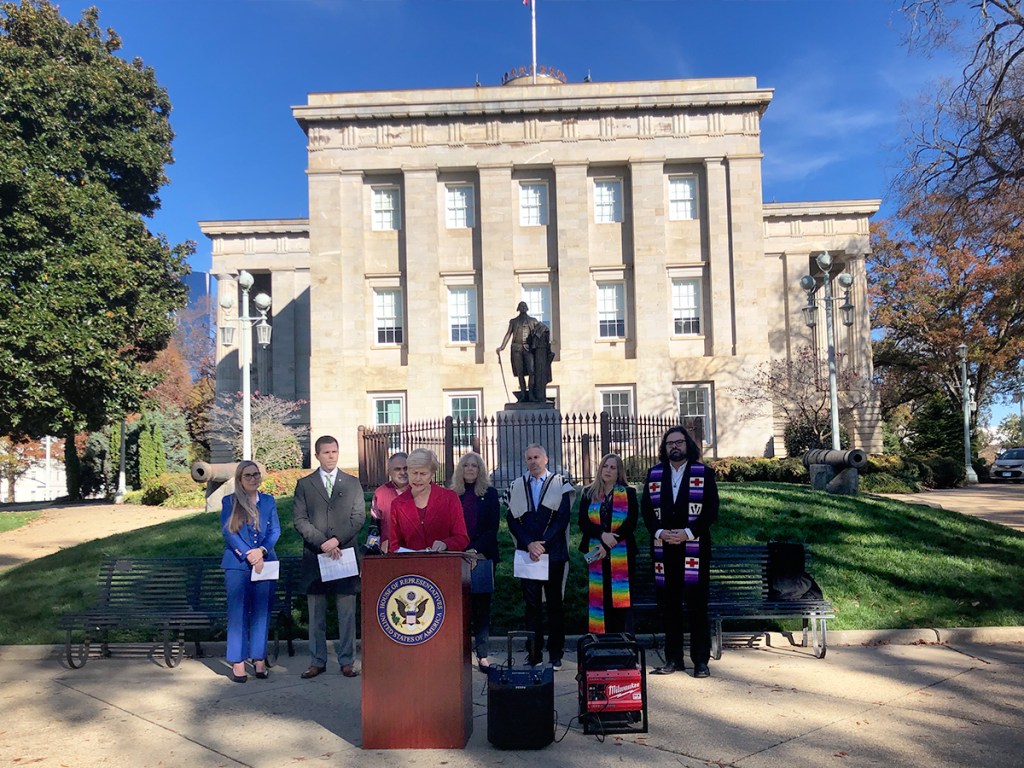
Industry advocates, such as the North Carolina Restaurant and Lodging Association (NCRLA), agree with Ross on the need for immigration reform at the federal level.
In a statement to the INDY, NCRLA president and CEO Allen Thomas noted that the hospitality industry “relies heavily on a stable, reliable workforce” and that it is focused on ensuring the state’s restaurants, hotels, and tourism businesses “can operate safely and predictably.”
“We support comprehensive, federal immigration reform that provides clarity for employers, protections for workers, and a lawful, functioning system that meets the workforce needs of industries like ours,” Allen’s statement continued. “Predictability and consistency are key for employers.”
The INDY reached out to the North Carolina Chamber of Commerce for a statement or interview; we did not receive a response before publication.
Mikki Paradis, the founder and CEO of PDI Drywall, Inc., spoke shortly after Ross at Monday’s press conference. Her company has been operating in the Triangle for more than 20 years, a record she credits to “the commitment and dedication to our country and our economy by the immigrant community.”
But last week, she noted, business was quiet.
“Not a hammer swung, not a sheet of drywall hung, not a wall painted; millions of dollars that would have come into our state and into our towns stopped solely because people in our community, the ones who are willing to do these jobs, were in fear of their lives,” Paradis said.
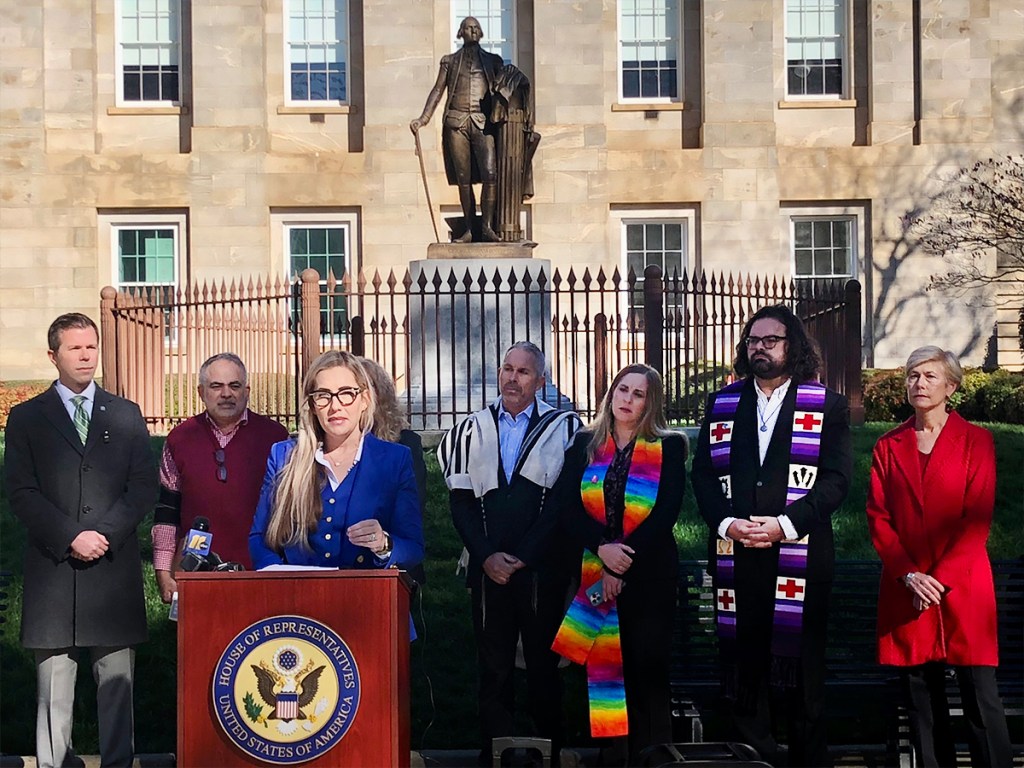
Paradis said she is struck by the patriotism of the immigrants “of all walks of life” with whom she works side by side, day after day, noting that they pay taxes and into programs like Social Security and abide by U.S. laws. She told a story about “a man I have worked with for over a decade,” who came to her recently with tears in his eyes and told her something she will never forget.
“He said, ‘This country may not claim me, it may not want me here, but it is still my country,” Paradis recalled. “‘I have lived here for over 20 years. My children were born, raised, and educated in this country. We go to the same churches and we pray to the same God as the men who show up in masks and zip tie our hands and disappear us in the night. I don’t know why they hate me, but I hope they know I love them anyway.”
Send an email to Wake County editor Jane Porter: jporter@indyweek.com. Comment on this story at backtalk@indyweek.com.

